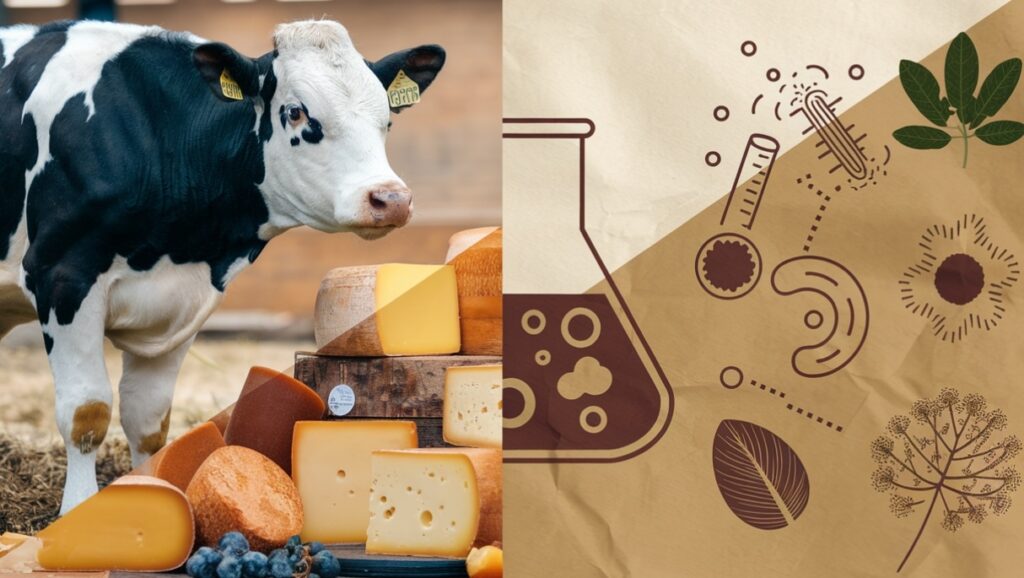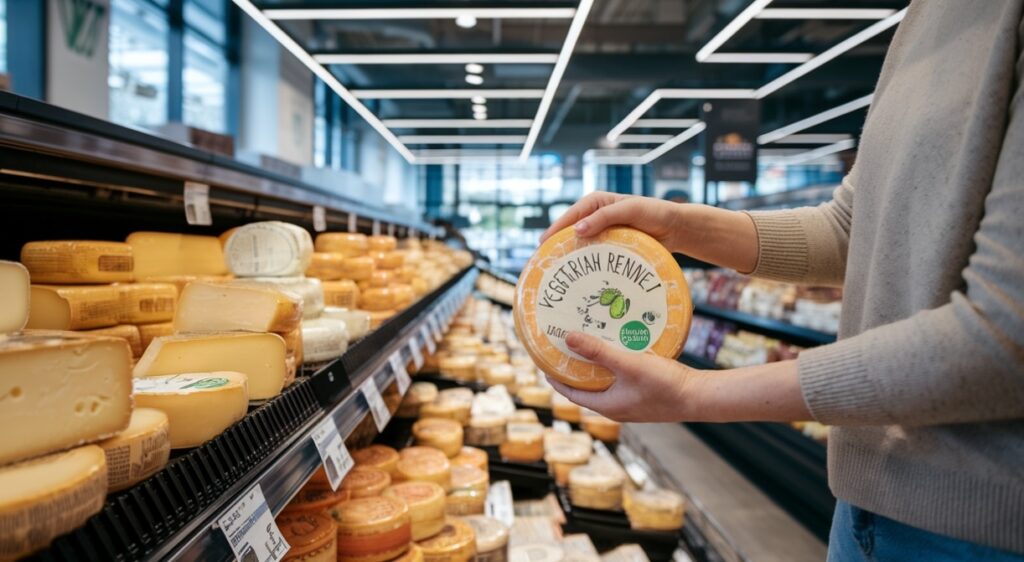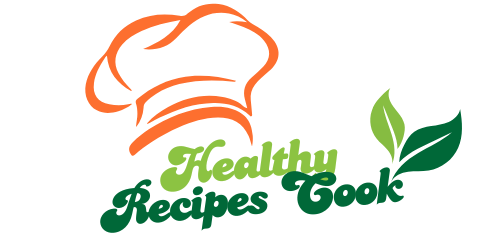What Cheese Can Vegetarians Eat?
Cheese is a staple in kitchens around the world, but for vegetarians, determining what cheeses can vegetarians eat can be a challenge. The question of “What cheeses can vegetarians eat” often arises due to hidden animal-derived ingredients found in some cheeses. For those following a meat-free lifestyle, identifying vegetarian-friendly cheese options is essential. Thankfully, there are plenty of delicious cheeses suitable for vegetarians. In this guide, we’ll explore what cheeses can vegetarians eat, the key ingredients to look for, and how to make informed choices while enjoying the best of vegetarian-friendly cheese.
Table of Contents
Understanding Vegetarianism and Cheese
What Does It Mean to Be Vegetarian?
Vegetarianism is a dietary choice that focuses on eliminating meat, fish, and poultry from one’s meals. However, understanding what cheeses can vegetarians eat can sometimes complicate food choices, given the variations within vegetarian diets. For example, lacto-vegetarians include dairy products like milk, butter, and cheese in their diet but may avoid specific types of cheese due to production methods that involve animal-derived ingredients.You can learn more about related dietary practices in Everything About Vegetarian Cheese.
For vegetarians, ethical considerations often influence food choices. Avoiding ingredients derived from slaughtered animals, such as gelatin or animal rennet, becomes a priority. This brings us to the question: how does cheese fit into the vegetarian lifestyle?
The Role of Cheese in a Vegetarian Diet
Cheese is a versatile and nutrient-rich addition to vegetarian meals. It’s packed with protein, calcium, and essential vitamins. Whether it’s sprinkled over pasta, melted in sandwiches, or incorporated into fancy recipes, cheese elevates flavors. If you’re curious about specific cheeses like Gouda, check out this guide on Vegetarian Gouda Cheese.
Types of Cheese and Their Ingredients
Animal Rennet vs. Vegetarian Rennet
The key issue revolves around rennet, an enzyme essential for coagulating milk into curds and whey. Traditional rennet, derived from the stomach lining of calves, poses a problem for those wondering what cheeses can vegetarians eat. Fortunately, vegetarian-friendly alternatives such as microbial or plant-based rennet are now commonly used, offering options that align with vegetarian dietary principles. For a detailed list of suitable options, visit Rennet-Free Cheeses.

Here’s a quick breakdown of rennet types:
- Animal Rennet: Derived from calf stomachs; not vegetarian.
- Vegetarian Rennet: Microbial enzymes or plant extracts like fig leaves.
Common Non-Vegetarian Ingredients in Cheese
Beyond rennet, some cheeses may include additives like gelatin or lipase (from animal sources). These can be sneaky and require careful label reading.
Popular Vegetarian-Friendly Cheese Types
If you’re on the hunt for vegetarian cheese, look for varieties like:
- Paneer: Made from curdled milk and lemon juice or vinegar.
- Mozzarella: Many brands now offer vegetarian options.
- Cheddar and Gouda: Available in vegetarian-certified versions.
While some cheeses may contain animal rennet, others like blue cheese crumbles offer a flavorful vegetarian option.
How to Identify Vegetarian Cheese
Decoding Cheese Labels
Ever felt baffled by ingredient lists? Look for terms like “vegetarian rennet” or “microbial enzymes.” Avoid products that explicitly list “animal rennet.” For more guidance, check out Is Provolone Vegetarian?.
Vegetarian Certification Marks
To make things easier, many vegetarian-friendly cheeses carry certifications like the “V-Label” or marks from organizations like the Vegetarian Society.
Reliable Cheese Brands for Vegetarians
Brands such as Violife, Daiya, and Boar’s Head offer trustworthy vegetarian or plant-based options.
“Finding vegetarian cheese is about reading between the lines – quite literally!” 🍃
If you’re looking for more details on how to choose a vegetarian-friendly version, check out our guide on **Vegetarian Gouda Cheese.
Common Problems and Solutions When Choosing Cheese
Difficulty Finding Suitable Cheese
One of the biggest challenges vegetarians face is locating cheese that doesn’t contain animal rennet. Many generic brands don’t clearly label their products, leaving consumers to guess or do extensive research. You can explore additional dairy-free and vegetarian options in Healthy Dairy Foods: Nutrient-Rich Options.

Solution: To ensure you’re choosing the right products, stick to brands renowned for their vegetarian options or visit specialty stores. When shopping, carefully read labels and look for certifications indicating the cheese is vegetarian-friendly. For those buying online, many websites now offer filters for dietary preferences, making it easier to identify what cheeses can vegetarians eat without the guesswork or frustration.
Handling Cross-Contamination Concerns
Cross-contamination is a real worry for strict vegetarians. Cheese production facilities may also process non-vegetarian items, raising questions about the purity of their products.
Solution: Seek out brands that produce exclusively vegetarian cheese. Smaller, dedicated dairy farms often have transparent practices, and plant-based options provide a guaranteed safe choice.
Dining Out as a Vegetarian
Eating out can feel like navigating a maze for vegetarians. Menu items labeled “vegetarian” often include cheese, but there’s no guarantee it’s truly suitable.
Solution: Don’t hesitate to ask your server about the type of cheese used. If they don’t have the information, opt for dishes without cheese or request it on the side. Many restaurants are becoming more accommodating to dietary needs, so speaking up can make a big difference.
Benefits of Vegetarian Cheese
Ethical Reasons to Choose Vegetarian Cheese
Opting for vegetarian cheese not only aligns with ethical farming practices but also upholds the principles of reducing harm to animals. By choosing cheeses made with microbial or plant-based rennet, vegetarians can enjoy their favorite foods knowing that no animals were harmed during production. Understanding what cheeses can vegetarians eat is a step toward making more compassionate and sustainable food choices.
Quote:
“Every bite of vegetarian cheese is a step toward a more compassionate world.” 🌱
Additionally, supporting vegetarian cheese brands encourages the food industry to prioritize cruelty-free and sustainable options.
Health Advantages of Plant-Based and Vegetarian Options
Vegetarian cheeses are often lower in saturated fat, cholesterol, and calories compared to traditional dairy options. Plant-based cheeses, in particular, are free of lactose, making them ideal for those with dietary restrictions.
For example, replacing regular cheese with a plant-based alternative in a recipe like Alice Springs Chicken doesn’t just cater to vegetarians it’s also heart-healthy and easier to digest.
DIY: Making Your Own Vegetarian Cheese
Easy Homemade Cheese Recipes
Making cheese at home might sound daunting, but it’s surprisingly simple! For example, paneer requires just milk and lemon juice or vinegar. If you’re ready to dive into dairy-free or vegetarian recipes, explore Healthy Dairy Foods for inspiration.
Here’s a quick process:
- Heat milk in a pot until it starts to boil.
- Add lemon juice or vinegar slowly, stirring until curds form.
- Strain the mixture using a cheesecloth, pressing out the whey.
Voila! You’ve made homemade paneer that’s completely vegetarian.
Ingredients and Tools You’ll Need
- Milk (choose dairy or plant-based alternatives depending on your preference)
- A coagulant like lemon juice, vinegar, or vegetarian rennet
- Cheesecloth or a fine strainer
- A heavy weight for pressing (e.g., a clean brick wrapped in foil)
Tips for Success in Cheese-Making
- Always use fresh, high-quality ingredients.
- Maintain consistent heat during the curdling process.
- Experiment with different flavors herbs, garlic, or chili flakes can transform homemade cheese into a gourmet delight.
Pairing Vegetarian Cheese With Recipes
Alice Springs Chicken Recipe With Vegetarian Cheese
This twist on the classic Alice Springs Chicken makes it perfect for vegetarians and cheese lovers alike. Traditionally, this dish is topped with melted cheese and crispy bacon. Our vegetarian version swaps out the bacon for smoky plant-based options and ensures the cheese is rennet-free.
Ingredients:
- 4 vegetarian chicken fillets or plant-based alternatives
- 1 cup of vegetarian-friendly cheddar cheese (shredded)
- ½ cup of mushrooms (sliced)
- 4 tbsp honey mustard sauce
- 2 tbsp olive oil
- ½ cup plant-based bacon crumbles
Instructions:
- Preheat your oven to 375°F (190°C).
- Heat olive oil in a skillet and sear the chicken fillets until golden brown.
- Place the fillets in a baking dish and layer with honey mustard sauce, mushrooms, and cheese.
- Top with bacon crumbles and bake for 15–20 minutes or until the cheese is melted.
Serve with a side of roasted vegetables or a fresh salad for a hearty meal.
Snacks and Quick Dishes with Vegetarian Cheese
Vegetarian cheese shines in quick and tasty recipes, such as:
- Grilled Cheese Sandwiches: Pair cheddar with sourdough for a classic comfort food.
- Cheese-Stuffed Peppers: Use mozzarella or feta for a creamy filling.
- Cheese Boards: Combine vegetarian brie, gouda, and a few plant-based options with fruits and nuts for a delightful snack spread.
“Vegetarian cheese isn’t just a substitute it’s a culinary treasure in its own right!”
The Future of Vegetarian Cheese
Innovations in Plant-Based Cheese
The rise of veganism and vegetarianism has driven incredible advancements in cheese alternatives. Companies are experimenting with ingredients like cashews, almonds, and even potatoes to create plant-based cheeses that rival their dairy counterparts in taste and texture.
Brands like Miyoko’s Creamery and Violife have led the charge in crafting gourmet plant-based cheeses that melt, stretch, and satisfy just like traditional cheese.
Growing Awareness and Demand for Ethical Dairy
As consumers become more conscious of the environmental impact of dairy farming, vegetarian cheese offers a more sustainable alternative. Supporting these products contributes to reducing carbon footprints and promoting animal welfare.
FAQs: What Cheese Can Vegetarians Eat?
Is Gouda cheese vegetarian?
Traditional Gouda cheese is not always vegetarian because it may contain animal rennet. However, many brands now produce vegetarian-friendly Gouda using microbial or plant-based rennet. Always check the label or opt for brands that clearly state their cheese is made with vegetarian rennet.
Is Provolone vegetarian?
Like Gouda, Provolone often contains animal rennet, making it unsuitable for vegetarians. Thankfully, there are vegetarian Provolone options on the market, especially from brands that specialize in vegetarian or plant-based products. Look for terms like “microbial enzymes” on the label to ensure it’s vegetarian.
If you’re wondering specifically about Provolone cheese, check out our detailed guide on Is Provolone Cheese Vegetarian? to learn more.
Which cheese has no rennet?
Some cheeses don’t use rennet at all, making them naturally vegetarian. Examples include:
- Paneer: Coagulated using acidic agents like lemon juice or vinegar.
- Ricotta: Often made without rennet, relying on heat and acidity to curdle the milk.
- Cottage Cheese: Similar to ricotta, it’s typically rennet-free.
Always verify the production method as some variations of these cheeses may still include rennet.
What makes some cheeses non-vegetarian?
The primary issue is the use of animal rennet, an enzyme derived from the stomach lining of calves. This ingredient makes the cheese unsuitable for vegetarians. However, alternatives like microbial or plant-based rennet have become increasingly popular.
Are plant-based cheeses good alternatives for vegetarians?
Absolutely! Plant-based cheeses are completely free of animal products, making them both vegetarian and vegan. They’re crafted from ingredients like cashews, almonds, or soy and can mimic the taste and texture of traditional cheese remarkably well.
Can vegetarians eat Parmesan cheese?
Unfortunately, traditional Parmesan (Parmigiano-Reggiano) is not vegetarian because it must be made with animal rennet according to Italian law. However, vegetarian-friendly Parmesan-style cheeses are widely available and can be great substitutes.
How can I ensure a cheese is vegetarian when shopping or dining out?
When shopping, check the label for terms like “vegetarian rennet” or “microbial enzymes.” Look for certifications such as the “V-Label.” When dining out, ask about the type of cheese used in your dish or opt for fresh cheeses like paneer or ricotta that are typically vegetarian.
Cheese holds a special place in vegetarian diets, but knowing what cheese vegetarians can eat requires a bit of awareness. By understanding the role of rennet, learning how to read labels, and exploring trusted vegetarian brands, you can make informed choices that align with your values and dietary needs.
From traditional dairy cheeses made with vegetarian rennet to innovative plant-based options, there’s a world of delicious possibilities to explore. Whether you’re crafting homemade cheese, indulging in recipes like Alice Springs Chicken, or building a gourmet cheese board, vegetarian cheese offers endless opportunities for creativity and enjoyment.
As awareness of ethical food choices continues to grow, the availability and variety of vegetarian cheese will only improve. So go ahead, savor your favorites guilt-free, and share the love for vegetarian-friendly cheese with family and friends. Who knew cheese could be this exciting?

